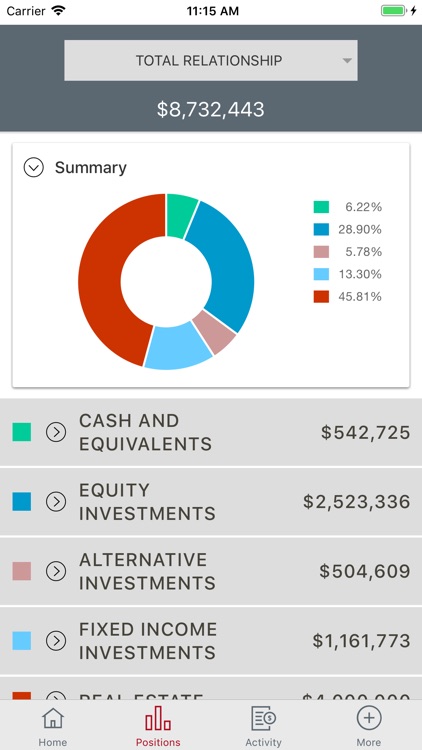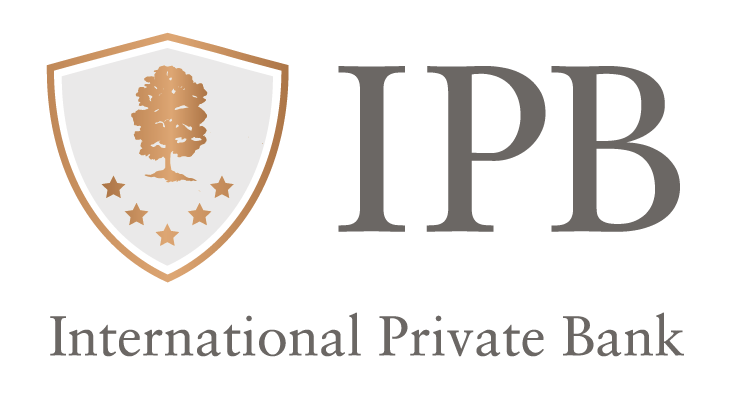
Managing $542 billion in client assets, RBC Wealth Management-U.S. has an impressive network of over 2,100 financial advisors and 180+ offices across the country. But, the wealth management sector is now facing new challenges and fierce competition. This is a time of critical transition for the industry. Client demographics are changing, and the business must change to keep up with their changing needs. This requires a reorientation for wealth managers. Here are four industry leaders who helped to shape the future wealth management.
William Trout: A thought leader in innovation and technology strategy for the wealth management sector. Trout is an expert in data capture, analysis and robotic process automation. He has an in-depth knowledge of financial markets, including areas like portfolio management as well as storage. He has been quoted in Bloomberg and the New York Times. He is a member of both the Committee of 100 as well as the YPO. He is also a member of the Executive Committee of Citi Private Bank Global Leadership Team, North America.

Steve McLaughlin - Building top asset management companies, Steve McLaughlin advises industry leaders for over 30 years. He has worked at Chase Global Asset Management and Mellon Bank. He also co-founded The UHNWI Institute. He has been a speaker at many industry conferences as well and has written many detailed reports on wealth management and private banks. He is also a member on the Madonna Foundation Board of Directors and Tabitha Foundation Board of Directors. He is a member of the Board of Directors of the Stransky Concert Series.
Hugh Lau: Beginning his financial services career in 2000, Lau worked with A.G. Edwards & Sons and Wells Fargo before joining the private banking practice of D.A. Davidson. He served on the board of directors of the Tabitha and Madonna Foundations and chaired the Stransky Concert Series. He also volunteered at the Lighthouse after-school program in Lincoln, Nebraska. Lau Financial Group was established by Lau in association with LPL Strategic Wealth Services.
Michael Zeuner: Michael Zeuner, a management consultant with a wealth of experience in wealth management, is Michael Zeuner. Zeuner was previously a senior executive partner in GenSpring and responsible for GenSpring's local family offices throughout the U.S. Zeuner was also a member GenSpring's operational committee. In 2013, he joined WE Family Offices. Prior to joining JP Morgan and Chase Manhattan Private Bank as its head of strategy, he worked for several years in marketing and strategy at the global private banks. He is a member of the YPO, the Committee of 100 and the Private Bank Global Leadership Team at Citi PrivateBank, North America.

Bruce Weatherill: Weatherill serves as the chairman non-executive of ClearView Financial Media. He also consults wealth management companies on strategic matters. He is also author of The Value of Trust. Weatherill is also a non-executive member of Wisdom Council. He is also the non-executive chairman of Fidelity Holdings UK.
FAQ
What is the distinction between passive income, and active income.
Passive income is when you earn money without doing any work. Active income requires hardwork and effort.
Active income is when you create value for someone else. You earn money when you offer a product or service that someone needs. You could sell products online, write an ebook, create a website or advertise your business.
Passive income can be a great option because you can put your efforts into more important things and still make money. Many people aren’t interested in working for their own money. Therefore, they opt to earn passive income by putting their efforts and time into it.
The problem is that passive income doesn't last forever. You might run out of money if you don't generate passive income in the right time.
Also, you could burn out if passive income is not generated in a timely manner. Start now. If you wait until later to start building passive income, you'll probably miss out on opportunities to maximize your earnings potential.
There are 3 types of passive income streams.
-
There are several options available for business owners: you can start a company, buy a franchise and become a freelancer. Or rent out your property.
-
Investments - these include stocks and bonds, mutual funds, and ETFs
-
Real Estate includes flipping houses, purchasing land and renting properties.
How to create a passive income stream
To generate consistent earnings from one source, you have to understand why people buy what they buy.
That means understanding their needs and wants. You must learn how to connect with people and sell to them.
The next step is how to convert leads and sales. You must also master customer service to retain satisfied clients.
Every product or service has a buyer, even though you may not be aware of it. If you know who this buyer is, your entire business can be built around him/her.
It takes a lot of work to become a millionaire. To become a billionaire, it takes more effort. Why? Because to become a millionaire, you first have to become a thousandaire.
Then you must become a millionaire. And finally, you have to become a billionaire. It is the same for becoming a billionaire.
How can someone become a billionaire. You must first be a millionaire. To achieve this, all you have to do is start earning money.
You have to get going before you can start earning money. Let's now talk about how you can get started.
How does a rich person make passive income?
There are two options for making money online. Another way is to make great products (or service) that people love. This is known as "earning" money.
The second way is to find a way to provide value to others without spending time creating products. This is known as "passive income".
Let's say that you own an app business. Your job is to develop apps. You decide to give away the apps instead of making them available to users. It's a great model, as it doesn't depend on users paying. Instead, you rely on advertising revenue.
Customers may be charged monthly fees in order to sustain your business while you are building it.
This is how the most successful internet entrepreneurs make money today. They give value to others rather than making stuff.
What is the limit of debt?
It is important to remember that too much money can be dangerous. Spending more than what you earn can lead to cash running out. This is because savings takes time to grow. You should cut back on spending if you feel you have run out of cash.
But how much should you live with? There is no universal number. However, the rule of thumb is that you should live within 10%. You won't run out of money even after years spent saving.
This means that even if you make $10,000 per year, you should not spend more then $1,000 each month. Spend less than $2,000 per monthly if you earn $20,000 a year. And if you make $50,000, you shouldn't spend more than $5,000 per month.
It is important to get rid of debts as soon as possible. This includes student loans and credit card bills. After these debts are paid, you will have more money to save.
It's best to think about whether you are going to invest any of the surplus income. If you choose to invest your money in bonds or stocks, you may lose it if the stock exchange falls. However, if you put your money into a savings account you can expect to see interest compound over time.
Consider, for example: $100 per week is a savings goal. It would add up towards $500 over five-years. Over six years, that would amount to $1,000. In eight years you would have almost $3,000 saved in the bank. In ten years you would have $13,000 in savings.
You'll have almost $40,000 sitting in your savings account at the end of fifteen years. That's quite impressive. If you had made the same investment in the stock markets during the same time, you would have earned interest. Instead of $40,000 in savings, you would have more than 57,000.
It's crucial to learn how you can manage your finances effectively. You might end up with more money than you expected.
Why is personal finance so important?
If you want to be successful, personal financial management is a must-have skill. We live in a world that is fraught with money and often face difficult decisions regarding how we spend our hard-earned money.
Why then do we keep putting off saving money. What is the best thing to do with our time and energy?
Yes, and no. Yes because most people feel guilty about saving money. You can't, as the more money that you earn, you have more investment opportunities.
Focusing on the big picture will help you justify spending your money.
Controlling your emotions is key to financial success. Negative thoughts will keep you from having positive thoughts.
Your expectations regarding how much money you'll eventually accumulate may be unrealistic. This is because you haven't learned how to manage your finances properly.
Once you have mastered these skills you will be ready for the next step, learning how budgeting works.
Budgeting is the practice of setting aside some of your monthly income for future expenses. By planning, you can avoid making unnecessary purchases and ensure that you have sufficient funds to cover your bills.
You now have the knowledge to efficiently allocate your resources and can start to see a brighter financial future.
What is the fastest way you can make money in a side job?
You can't just create a product that solves someone's problem to make quick money if you want to really make it happen.
You must also find a way of establishing yourself as an authority in any niche that you choose. It's important to have a strong online reputation.
The best way to build a reputation is to help others solve problems. It is important to consider how you can help the community.
Once you have answered this question, you will be able immediately to determine which areas are best suited for you. Online earning money is possible in many ways. However, these opportunities are often highly competitive.
You will see two main side hustles if you pay attention. The first type is selling products and services directly, while the second involves offering consulting services.
Each approach has its pros and cons. Selling products or services gives you instant satisfaction because you get paid immediately after you have shipped your product.
However, you may not achieve the level of success that you desire unless your time is spent building relationships with potential customers. These gigs can be very competitive.
Consulting helps you grow your company without worrying about shipping goods or providing service. But, it takes longer to become an expert in your chosen field.
To be successful in either field, you must know how to identify the right customers. It takes some trial and error. It pays off in the end.
Statistics
- Shares of Six Flags Entertainment Corp. dove 4.7% in premarket trading Thursday, after the theme park operator reported third-quarter profit and r... (marketwatch.com)
- According to a June 2022 NerdWallet survey conducted online by The Harris Poll. (nerdwallet.com)
- These websites say they will pay you up to 92% of the card's value. (nerdwallet.com)
- Mortgage rates hit 7.08%, Freddie Mac says Most Popular (marketwatch.com)
- According to the company's website, people often earn $25 to $45 daily. (nerdwallet.com)
External Links
How To
How To Make Money Online
Today's methods of making money online are very different from those used ten years ago. The way you invest your money is also changing. While there are many methods to generate passive income, most require significant upfront investment. Some methods can be more challenging than others. Before you start investing your hard-earned money in any endeavor, you must consider these important points.
-
Find out what type of investor are you. PTC sites (Pay Per Click) are great for those who want to quickly make a quick buck. They pay you to simply click ads. If you're looking for long-term earning potential, affiliate marketing might be a good option.
-
Do your research. Before you make a commitment to any program, do your research. Look through past performance records, testimonials, reviews. You don't want to waste your time and energy only to realize that the product doesn't work.
-
Start small. Don't just jump right into one big project. Instead, begin by building something basic first. This will help you learn the ropes and determine whether this type of business is right for you. When you feel confident, expand your efforts and take on bigger projects.
-
Get started now! You don't have to wait too long to start making money online. Even if a long-term employee, there's still time to build up a profitable portfolio of niche websites. All you need are a great idea and some dedication. Take action now!